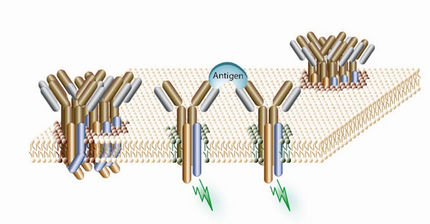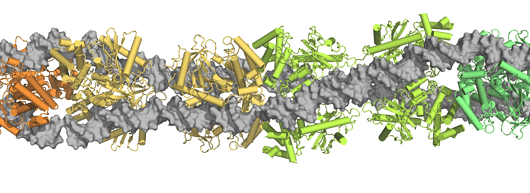Ablynx initiates Phase I for ALX-0141
Ablynx announced that it has initiated a double-blind, randomised, placebo-controlled Phase I study with ALX-0141, a Nanobody® targeting Receptor Activator of Nuclear Factor kappa B Ligand (RANKL), in healthy postmenopausal women.
RANKL is involved in the production of osteoclasts, a type of cell responsible for the destruction of bone (bone resorption). Under normal physiological circumstances there is a delicate balance between bone formation and bone resorption, however, a disturbance in this balance can lead to excessive osteoclast activity and bone loss. An anti-RANKL Nanobody has the potential to inhibit this process and may have therapeutic application in the treatment of degenerative bone diseases, such as post-menopausal osteoporosis (PMO), rheumatoid arthritis and cancer driven bone deterioration.
The Phase I study will investigate the safety, tolerability, pharmacokinetics and pharmacodynamics of a single subcutaneous injection of ALX-0141. In addition, the study will measure important bone biomarkers to provide an early indication of efficacy. Ablynx will recruit up to 42 postmenopausal women, who represent the initial target population for ALX-0141 in PMO.
Dr Edwin Moses, CEO and Chairman at Ablynx, commented: "We are delighted to advance ALX-0141 into the clinic within just 3.5 years of initiating this programme. There are now four Nanobodies in clinical trials including Pfizer's anti-TNF-alpha Nanobody which entered Phase II in September 2009 in patients with rheumatoid arthritis."
Most read news
Topics
Organizations
Other news from the department research and development

Get the life science industry in your inbox
By submitting this form you agree that LUMITOS AG will send you the newsletter(s) selected above by email. Your data will not be passed on to third parties. Your data will be stored and processed in accordance with our data protection regulations. LUMITOS may contact you by email for the purpose of advertising or market and opinion surveys. You can revoke your consent at any time without giving reasons to LUMITOS AG, Ernst-Augustin-Str. 2, 12489 Berlin, Germany or by e-mail at revoke@lumitos.com with effect for the future. In addition, each email contains a link to unsubscribe from the corresponding newsletter.

























































